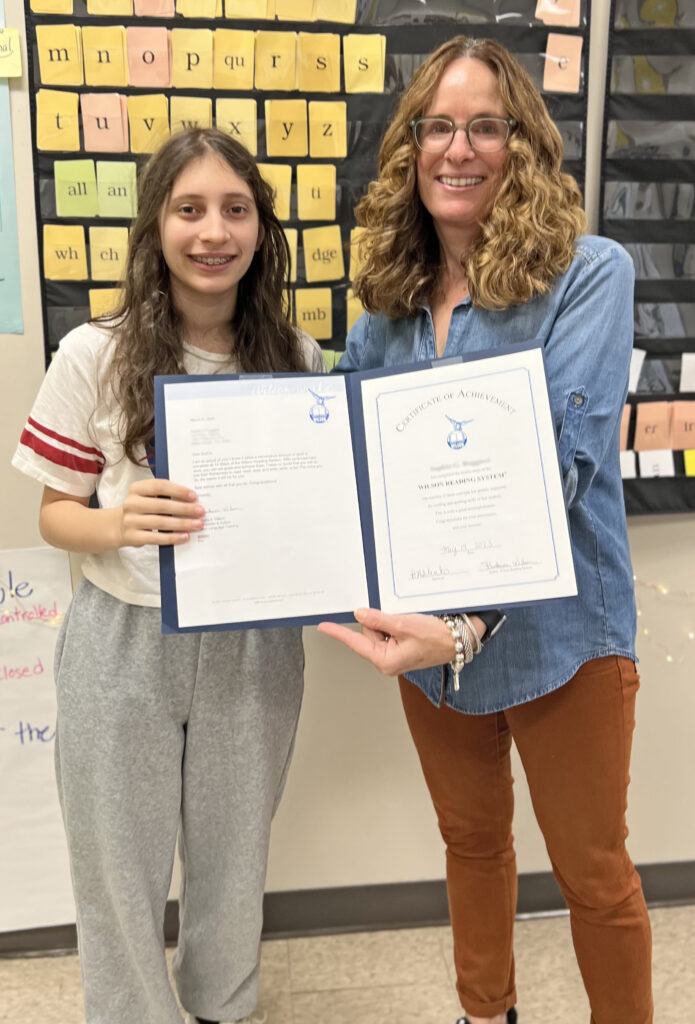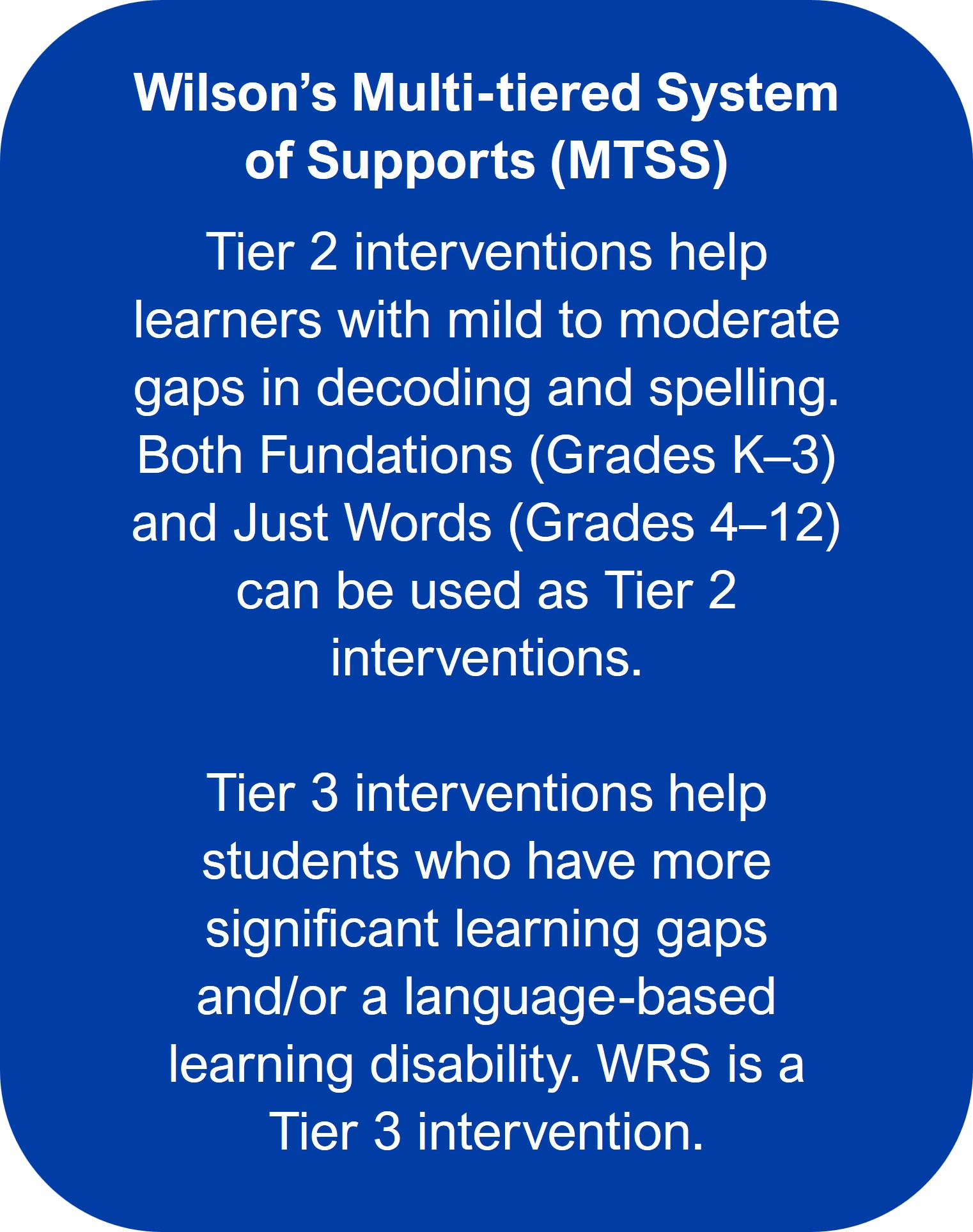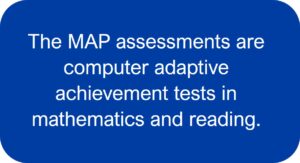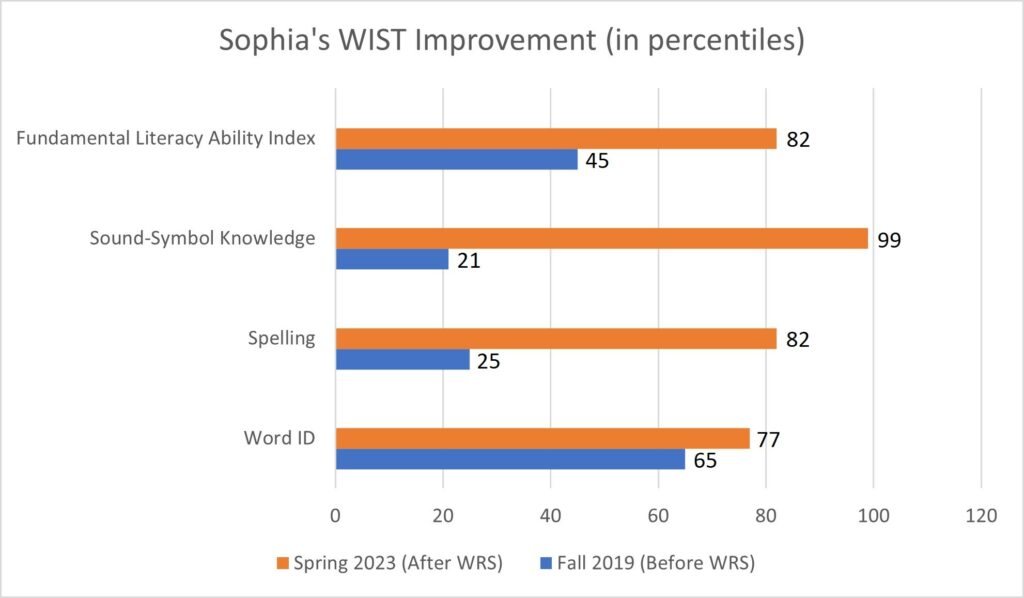

For struggling readers, it may seem as though other students learn to read like magic. However, with patience, hard work, advocacy, and the right interventions, anyone can learn.
From a very young age, Sophia was enthralled with stories. She made up intricate plots with her dolls and gave each a name and a backstory. Sophia also loved being read to—something that continued into later childhood. She was as intelligent as she was creative and could easily discuss topics like metacognition and the processes of learning and understanding.
However, Sophia’s academic experience didn’t match the potential her parents saw at home. She experienced reading and spelling difficulties and developed a severe stutter. The more she tried to learn to read, the more her anxiety around it grew.
“Her stutter didn’t start until she began trying to learn to read,” said her mother, Paula.
Paula raised her concerns with school staff and encouraged them to identify her daughter’s needs and begin the correct interventions.
Trial, Error, and Advocacy
Paula began researching Sophia’s struggles and attended lectures on dyslexia at a neighboring school district. There, she learned about an International Dyslexia Association conference in Philadelphia. At the conference, Paula began learning about reading difficulties and the way Structured Literacy (SL) instruction can help struggling students learn to read.

School administrators initially wondered if Sophia struggled to read, spell, and communicate because she was bilingual. Paula pointed out to them that her daughter had grown up speaking English and had difficulties with the same sounds and phonemes in both Portuguese and English. Paula insisted that English learner (EL) classes were not the solution for her daughter.
The school then tried different accommodations and interventions, including assigning Sophia a personal care assistant to help her communicate with her peers and teachers and spell words. This made her feel singled out and did not improve her situation.
Next, Sophia’s school offered small-group intervention with Fundations® —and later, Just Words® —but she needed more intensive help.
Fortunately, the school’s next step was to intervene with the Wilson Reading System® (WRS). With the help of an advocate, Paula worked with the school to develop an Individualized Education Program (IEP) for Sophia so she could receive WRS lessons. Her mother also observed her daughter’s virtual lessons during the COVID-19 pandemic to ensure that the program was taught in the intended way. The school gave Sophia the time she needed to receive full lessons, even offering some summertime instruction to help her catch up.
“Her mom was instrumental in making sure her needs were identified and somebody was teaching her the program with fidelity,” said Bridget Telenko, the Wilson® Dyslexia Therapist (W.D.T.) who helped Sophia complete WRS. “She was very good about that.”
Paula agreed, “The program works best if it’s followed with fidelity.”
A Magical Milestone
Popular children’s fantasy novels drew Sophia’s attention early on. She wanted to enjoy the books her classmates were able to read, which motivated her to work hard and focus on WRS lessons.
Even though reading wasn’t easy, Sophia immersed herself in stories and joined local book clubs. To help her daughter stay motivated to read without becoming exhausted from the effort, Paula attended these clubs with Sophia and helped her read the books. At first, Sophia would read one paragraph aloud at a time, and Paula would read two. Slowly over time, Sophia was able to read more on her own.
“I saw other kids reading the Harry Potter books in class,” Sophia said. “More than anything, I wanted to be able to read those books on my own.”
That magical moment and proud achievement came at the end of WRS Step 6 when she was able to read Harry Potter and the Sorcerer’s Stone by herself. She continued to enjoy reading for fun—especially fantasy novels—throughout middle school.
Impressive Results
Sophia worked hard and remained eager to participate fully in her classes. After some hiccups due to the COVID-19 pandemic, she began attending daily WRS lessons with Bridget in middle school.
An early and unexpected result of her rapid progress happened within months of Sophia beginning WRS lessons―she no longer needed a personal care assistant to help her communicate. Her parents noted that her self-confidence grew as she continued receiving WRS instruction throughout fifth grade. After having honed her processing and self-expression skills, she lost her stutter.
Sophia also remarked that her handwriting improved along with her spelling skills.

Sophia’s Measures of Academic Progress (MAP) test scores improved greatly during the four years she received WRS instruction. In 2018 (before she began WRS), her reading score was in the 66th percentile with a Lexile score of 637. In 2023, her score was in the 79th percentile with a Lexile score of 1365.
Sophia’s Word Identification and Spelling Test (WIST) scores told an even clearer story of her improvement. The orange bars in the graph represent Sophia’s scores after completing WRS:

Sophia had developed not only confidence but also the skills she needed to be successful in her schoolwork and enjoy anything she wanted to read.
Reading Was Just the Beginning
Sophia’s achievements didn’t end with good test scores and stories of the beloved wizard. She continued to flourish throughout middle school and participated in her school’s geography and history bees as well as the robotics club.
Sophia completed WRS Level 12 by the end of eighth grade and was inducted into the National Junior Honor Society. She looked forward to using her hard-earned academic independence to take honors and advanced placement (AP) classes in high school.
According to Bridget, Sophia’s core content area teachers often remarked on Sophia’s intelligence. They couldn’t believe this star student had ever experienced severe difficulties with reading and spelling!
Now in ninth grade, Sophia is taking two honors classes and one AP class.
“She has really flourished,” Paula beamed.
Bridget concluded, “Since I was one of her WRS instructors for the last three years, it has been a joy to observe Sophia’s self-confidence soar as she accomplished her many academic achievements.”
Do you have your own Wilson Success Story to share? Let us know!